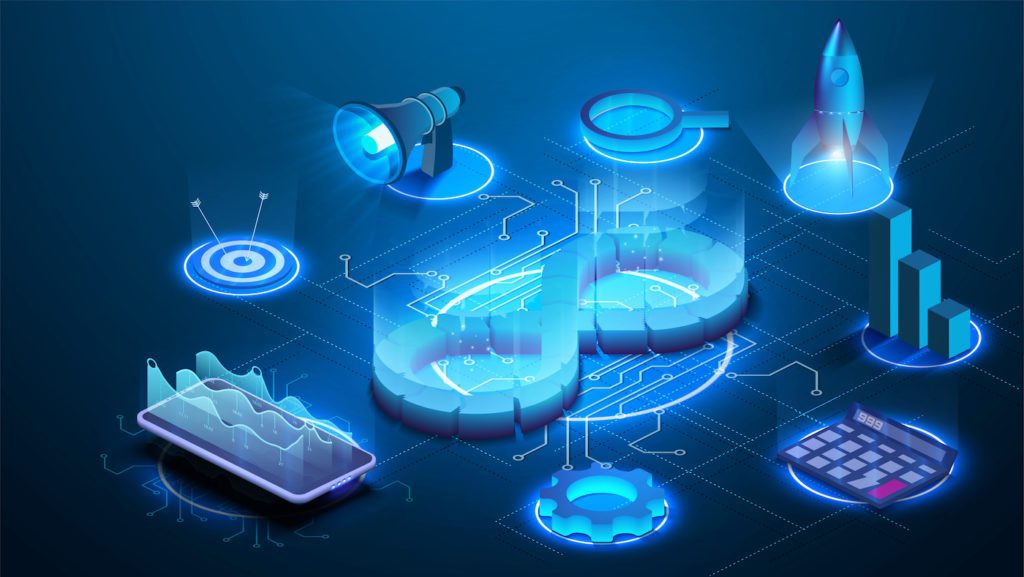
You’ve almost certainly heard of DevOps before, especially if you work in the tech world—but you may or may not have heard of MLOps. A newer development in the machine learning world, MLOps is quickly taking hold due to its effective translation of classic DevOps principles.
While these two disciplines are related, as the similar names indicate, they also have some key differences that you should know about.
What is DevOps?
DevOps is short for software development and IT operations, and the term encompasses both the practices and tools that comprise DevOps as well as the cultural mindset behind them. DevOps represented a major shift in the IT world in the 2010s, moving away from slow, complicated processes toward faster and more iterative development.
There are many popular tech principles that started or evolved within the DevOps framework, including continuous delivery, infrastructure as code, and Agile development methodologies. DevOps was also one of the driving forces behind removing team-based silos and bringing software and IT workers into closer contact with the rest of the company and with customers.
The DevOps lifecycle consists of software development, integration, testing, deployment, and monitoring; the cycle is performed in a continuous loop until the software product achieves the necessary quality. The purpose of the DevOps lifecycle is to build, iterate, and launch the highest quality software as quickly as possible.
DevOps has found great success in its ability to make processes more efficient, which is one of the main reasons for its popularity in the software development world. It’s also one of the reasons why this approach is spilling over to other fields, including machine learning.
Explore top solutions: Best DevOps Tools
What is MLOps?
MLOps (machine learning operations) takes the same principles of DevOps and applies them to the field of machine learning. In this case, the machine learning model is substituted for the software product.
Despite this difference, however, the machine learning model still undergoes the same steps of development, integration, testing, deployment, and monitoring, just like software does in DevOps. The ultimate goal of MLOps is to eventually achieve the automatic deployment of machine learning models into software systems.
MLOps is a relatively new development compared to DevOps, and the field still needs time to mature. Part of this is due to the fact that machine learning and artificial intelligence have only begun to achieve rapid advancement over the past decade or so, propelled by improved hardware developments and accessibility.
The field of MLOps will continue to evolve over the next few years as machine learning itself advances and as teams figure out new ways to apply DevOps principles to machine learning.
Explore top solutions: Best MLOps Tools & Platforms
MLOps vs. DevOps: Similarities
There are certainly some similarities between MLOps and DevOps, which makes sense since MLOps is based on DevOps principles.
MLOps uses the same philosophies and lifecycle steps as DevOps does, but it applies them in a new setting with machine learning models. DevOps and MLOps processes encompass many of the same functions, such as version control and monitoring, and their team structures can look similar as well.
However, in practice, a lot of these processes look different because software applications and machine learning models are fundamentally different products with unique challenges. Machine learning itself is also a much newer area of exploration than DevOps, so the field itself is constantly in flux as teams figure out the most effective way to move forward both in general and when it comes to applying DevOps principles specifically.
MLOps vs. DevOps: Differences
The primary differences between MLOps and DevOps come down to specific development processes, version control, monitoring, and team members.
Development processes
The first major difference between MLOps and DevOps is the development process itself.
In DevOps, the team creates a software application or interface, then deploys it and runs it through a series of tests. This process is repeated until the final product meets the intended goal.
In MLOps, the “coding” process is actually building and training a machine learning model, and the testing involves checking the trained model against the test model. This cycle continues until the model performs at the level of accuracy expected.
The developmental process in MLOps is much more experimental in nature. While the process might seem codified on paper, in practice things often move in flux with the more fluid nature of the machine learning model.
Version control
Version control involves tracking and managing changes to the software product and is essential for identifying and solving errors that arise from those changes.
In DevOps, version control is typically less complicated, since it involves tracking any changes made to the code and artifacts. Version control for MLOps involves tracking changes made to the model code, training input data, experiment run, and other elements.
However, version control is just as important in MLOps because machine learning models are dynamic by nature. Any new addition can potentially cause the model’s performance to degrade over time. This contrasts with DevOps, where the software itself doesn’t degrade if a piece of code is integrated incorrectly, making it easier to find the error and fix it.
Monitoring
Monitoring is an essential task that helps maintain a product’s quality after the initial development process. In DevOps, monitoring involves the entire lifecycle, from planning to deployment, not just the software product itself. On the other hand, MLOps focuses more on monitoring the machine learning algorithm itself to identify data drift and accuracy defects that deviate from the predicted results.
Team members
Given the different nature of the end products, both DevOps and MLOps teams have different roles and functions. DevOps teams usually consist of software engineers who develop the product and DevOps engineers who deploy it. In comparison, MLOps teams usually consist of data scientists who train the model and machine learning engineers who deploy and monitor the model.